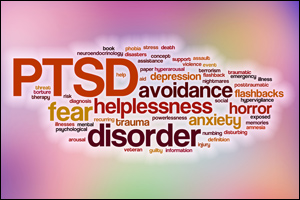 By now everyone knows that the rates of PTSD and suicidal thinking among veterans is significantly higher than the rates among those who have not been to war. Not so well known is that the Department of Veterans’ Affairs (VA) and the Department of Defense (DoD) have significantly ramped up their response to treating these pervasive conditions. Their reports on assessment and treatment of PTSD and trauma-related conditions and of potential suicides contain information on the latest research, assessment instruments, treatments, and assessment and treatment algorithms.
By now everyone knows that the rates of PTSD and suicidal thinking among veterans is significantly higher than the rates among those who have not been to war. Not so well known is that the Department of Veterans’ Affairs (VA) and the Department of Defense (DoD) have significantly ramped up their response to treating these pervasive conditions. Their reports on assessment and treatment of PTSD and trauma-related conditions and of potential suicides contain information on the latest research, assessment instruments, treatments, and assessment and treatment algorithms.
What is of particular relevance to psychotherapists in private practice is that the VA is making a big push to provide healthcare benefits to veterans who seek treatment outside of VA facilities. Because of this, psychotherapists should routinely inquire of new clients whether they are veterans, whether their veteran clients meet VA healthcare benefit requirements, and how to encourage veterans to apply for the recently updated VA healthcare benefits card. Therapists also need to know how to apply for eligibility as a VA healthcare provider in private practice.
Some basic facts:
- Between 11% and 20% of veterans who served in Operation Iraqi Freedom or Operation Enduring Freedom have PTSD in any given year.
- Approximately 12% of Desert Storm Gulf War veterans have PTSD in a given year.
- According to estimates from the Centers for Disease Control and Prevention (CDC), veterans account for approximately 20% of the deaths from suicide in the United States. More recent estimates from the VA increase the estimate to 22%. An estimated 18-22 veterans die from suicide each day.
- Suicide rates are higher among veterans who use VA services. Between April 1, 2010 and March 30, 2012, non-fatal suicide attempts were reported in almost 30,000 veterans utilizing VA services. Of these, approximately half were to individuals who attempted suicide for the first time.